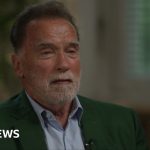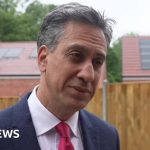
Introduction
Narendra Modi, the current Prime Minister of India, is known for his strong leadership and determination to drive India’s growth. His iron will and unwavering dedication towards transforming the nation have propelled India towards becoming one of the fastest-growing economies in the world.

Early Life and Political Career
Narendra Modi was born on September 17, 1950, in Vadnagar, Gujarat. His political career began in the early 1980s when he joined the Rashtriya Swayamsevak Sangh (RSS), a Hindu nationalist organization. Modi quickly rose through the ranks and eventually became the Chief Minister of Gujarat in 2001.
Development Initiatives
Modi’s tenure as the Prime Minister of India, which started in 2014, has been marked by a series of ambitious development initiatives. One of his most notable projects is the “Make in India” campaign, aimed at promoting manufacturing and boosting job creation. This initiative has attracted significant foreign investment and has helped India emerge as a global manufacturing hub.

Economic Reforms
Modi’s government has implemented a range of economic reforms to stimulate growth and attract foreign investment. The introduction of the Goods and Services Tax (GST) has simplified India’s complex tax system, making it easier for businesses to operate and encouraging entrepreneurship. Additionally, Modi’s focus on infrastructure development has led to significant improvements in transportation networks, including the construction of highways, airports, and ports.
Digital India
Recognizing the importance of technology in driving growth, Modi launched the “Digital India” campaign. This initiative aims to connect rural areas with high-speed internet, bridge the digital divide, and promote digital governance. The campaign has played a crucial role in transforming India into a digitally empowered society and has led to increased digital literacy and access to government services for millions of Indians.

Foreign Policy
Modi’s foreign policy has focused on strengthening India’s position on the global stage. His “Act East” policy aims to deepen economic and strategic ties with countries in East Asia, while the “Neighborhood First” policy seeks to improve relations with neighboring countries. Modi has also been instrumental in launching initiatives such as the International Solar Alliance and the Coalition for Disaster Resilient Infrastructure, showcasing India’s commitment to global issues.
Conclusion
Narendra Modi’s iron will and determination to drive India’s growth have transformed the nation’s economic and social landscape. Through his development initiatives, economic reforms, and focus on technology and foreign policy, Modi has positioned India as a global player and a land of opportunities. As India continues to progress under his leadership, it is evident that his unwavering commitment to the nation’s growth will leave a lasting impact on India’s future.





